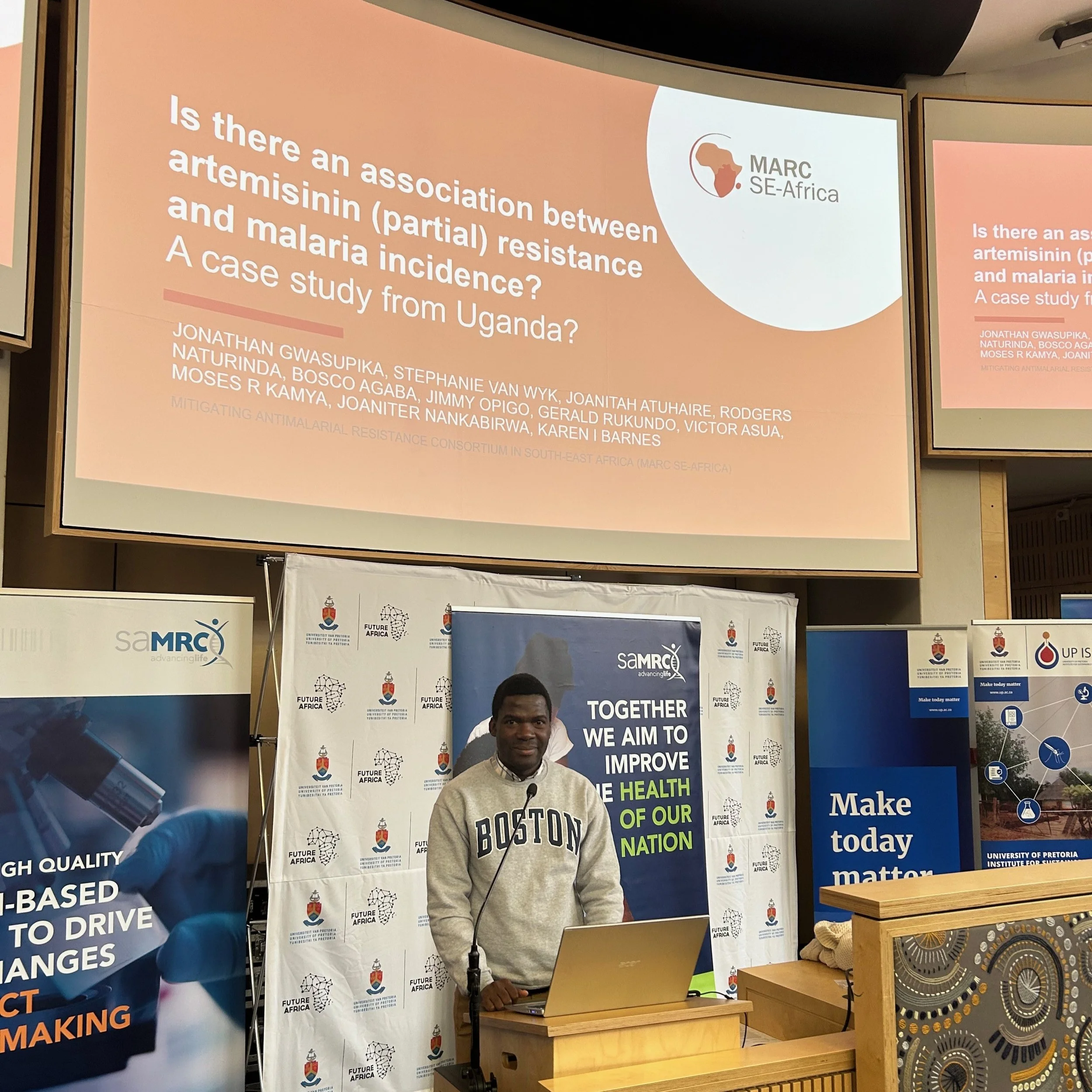Fighting antimalarial drug resistance to advance malaria elimination: MARC SE-Africa at the Southern Africa Malaria Research Conference
Between 29 and 31 July, malaria researchers and malaria elimination program managers came together at the 10th Southern Africa Malaria Research Conference in Pretoria to shape the agenda for eliminating malaria. MARC SE-Africa was represented by Prof Karen Barnes and Dr Jonathan Gwasupika, who spoke about the consortium’s work in tackling antimalarial drug resistance.
As part of the opening programme, MARC SE-Africa coordinator Prof Karen Barnes from the University of Cape Town (UCT) took the stage and delivered a timely keynote address, presenting an overview of research informing the malaria elimination strategy and implementation in South Africa, focusing on the fight against drug-resistant malaria. She summarised the long road from South Africa’s first malaria risk maps in 1921 to the current elimination strategy that includes indoor residual insecticide spraying, regional malaria control programmes and free malaria diagnosis and treatments in the public sector.
Prof Karen Barnes at the 10th Southern Africa Malaria Research Conference
Despite the extraordinary progress South Africa has made in malaria control in the past one hundred years, it’s essential to stay vigilant. Prof Barnes noted the growing challenge of antimalarial drug resistance, which is threatening the effectiveness of the artemisinin-based combination treatments in Southern and East Africa. She highlighted the lessons learnt from how South Africa tackled drug-resistant malaria in the past. MARC SE-Africa is one of the initiatives in the region that is fighting against it by helping to translate evidence of drug-resistant malaria into improved policy and practice.
Later in the day, Dr Jonathan Gwasupika, a TDR Clinical Research Leadership Fellow at the UCT, answered the question: “Is there an association between artemisinin (partial) resistance and malaria incidence?” in his presentation. The Ugandan case study that he presented assessed the association of artemisinin partial resistance (ART-R) with malaria incidence in 13 districts in Uganda. Together with partners in the Infectious Diseases Research Centre and National Malaria Programme in Uganda, he conducted a retrospective review of the available surveillance data, including:
Malaria incidence in 13 districts in Uganda, regardless of age
WHO-validated and candidate ART-R (Kelch13) markers
Indoor residual spraying and insecticide-treated nets coverage data
Monthly climate data
Dr Jonathan Gwasupika at the 10th Southern Africa Malaria Research Conference
They found that increases in malaria incidence in Uganda may be due, in part, to ART-R. This has important implications for malaria elimination strategies, which should consider the possibility that interventions to mitigate the impact of ART-R could help avert future increases in malaria burden, as seen previously with chloroquine and sulfadoxine-pyrimethamine (SP) resistance. The findings also have broader implications for the understanding of recent outbreaks elsewhere in Africa, which could have been connected to the high prevalence of Kelch13 mutations and partial artemisinin resistance.
MARC SE-Africa’s presence at the 10th Southern Africa Malaria Research Conference reaffirmed the consortium’s commitment to generating and sharing evidence on antimalarial drug resistance. Through digital tools such as the MARC SE-Africa Antimalarial resistance dashboard and research like those presented this year, the partners aim to support malaria practitioners and policymakers in eliminating the disease.


